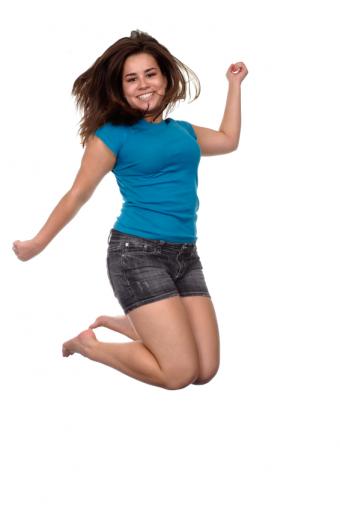Walking

Walking is the most basic of movements that people use to get through the day. In French there are two verbs that express the motion of walking:
- Marcher (mahr-shay) is used as the general term for walk, and is generally used when you're walking with a purpose in your stride.
- Se promener (suh proh-muh-nay) is used to talk about taking a leisurely walk, or taking your time while walking.
Let's Go

Aller means 'to go' in French. It is also used in a lot of everyday phrases that describe everything from how you go to going away. Try out some of these phrases - many are somewhat common expressions so when you use them, you'll seem really fluent!
- aller à pied (ah-lay ah pee-yay) - to go on foot
- aller chercher (ah-lay shair-shay) - to go get something
- aller en voiture (ah-lay on vwah-toor) - to go in a car
- Allons-y! (ah-lonz-ee) - Let's go
- s'en aller (sahn-ah-lay) - to go away
Coming

Whether you want to tell your mom you're coming when she calls for you, or you want to talk about when you arrived at work, these two verbs are what you need:
- Venir (vuh-neer) - to come
- Arriver (ah-ree-vay) - arriving
Sneaking

Glisser is a multi-purpose verb in French. It implies gliding. However, glisser is also used to describe slipping and sliding-whether it be on purpose or an accident. Interestingly, se glisser means to "sneak" or "creep"-the idea being that you are walking without making any noise as if you were "gliding." A few more super sneaky verbs include:
- Se glisser (suh glee-say) - to sneak
- Eviter (ay-vee-tay) - to avoid
- Manoeuvrer (mah-nuh-vray) - to maneuver
Strolling

If you're wanting to talk more about moving in slow motion, these verbs fit the bill. While more descriptive than using marcher or se promener, these are best used in great writing, as not very many people would speak this way in everyday common language:
- flâner (flah-nay) - to saunter or stroll
- errer (ay-rhay) - to wander
- méandre (may-ahn-druh) - to meander
- boitiller (bwah-tee-yay) - to hobble
Running

Courir is the basic verb for the word 'run,' but of course there are many different expressions to use for various purposes you have in running!
- courir (coo-rheer) - to run
- faire du jogging (fair doo jogging) - to jog or go running for exercise
- s'enfuir de (sohn fweer duh) - to run away from something
Hurry Up!

In a hurry? In English, you would us the verb "to be" to describe hurrying, as in, 'I am in a hurry.' However, in French, if you need to hurry, the verb se dépécher (suh day-peh-shay) might come in handy. Other verbs that have a sense of urgency include:
- Se presser (suh pressay - the 'e' in this is like the 'e' in 'wet') - to hurry to do something
- Accélérer (ahx-say-lay-ray) - to accelerate
- Bousculer (boo-skoo-lay) - to hustle
Sign up for our newsletter featuring all the latest stories and products we love.
Jumping

The word for jump depends on why and where you are jumping:
- sauter (so-tay): to jump, usually used for something like jumping up and down
- boundir (bown-deer): to leap, (think about the word "bound" in English)
- franchir d'un bond (frahn-sheer d'uhn bohnd): to jump a fence
- traverser (trah-vair-say): used to connote jumping across something
Playing

The French use the faire de (fair duh) construction, or the verb jouer à (*zhoo-ay) to talk about playing a sport. Typically, you'll use 'jouer à' for team sports, and 'faire du' for individual sports. For example:
- Jouer au football (*zhoo-ay oh football)
- Jouer au basketball (zhoo-ay oh basketball)
- Faire du jogging (fair doo zhah-ging)
- Faire du skiing (fair doo skiing)
*The 'j' in jouer is pronounced like the 's' in measure. The sports basketball and football sound very similar to their English counterparts, but the 'a' is pronounced like the 'a' in father.







